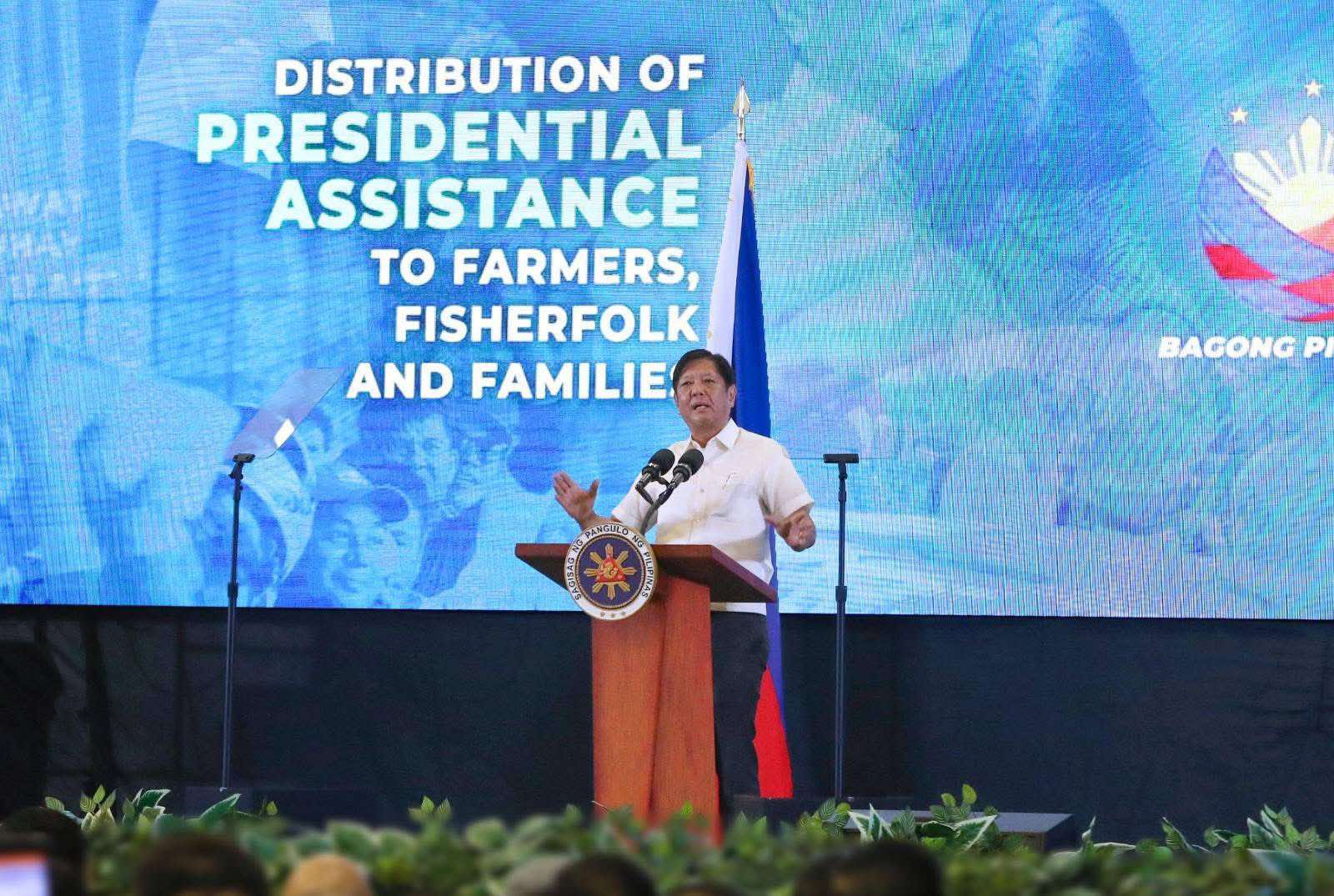Amid growing calls to postpone the first-ever Bangsamoro Autonomous Region in Muslim Mindanao (BARMM) parliamentary elections next year, President Marcos hinted that it might be best to push back the schedule to fix the issues regarding Sulu’s exclusion from the region.
 President Ferdinand 'Bongbong' Marcos Jr. at the distribution of presidential assistance to farmers, fisherfolk, and families in Lingayen, Pangasinan on Nov. 22, 2024. (Photo from the Presidential Communications Office)
President Ferdinand 'Bongbong' Marcos Jr. at the distribution of presidential assistance to farmers, fisherfolk, and families in Lingayen, Pangasinan on Nov. 22, 2024. (Photo from the Presidential Communications Office)
In an interview on Friday, Nov. 22, the Chief Executive said that the postponement is currently being studied as there might not be enough time to iron out the issues resulting from the Supreme Court’s (SC) decision to exclude Sulu province from BARMM.
“Well, we’re still studying it. Some of the local officials are saying because of the Supreme Court decision of separating Sulu from BARMM, maraming (there are a lot of) implications in terms of the changes that have to be made kung kaya natin. Baka hindi natin kayang gawin (if we can. We may not be able to do it) by May of next year,” he told reporters in Lingayen, Pangasinan.
Though he did not specify what, he added that several issues also came out as “unintended consequence” of the SC decision.
“Kaya hangga't maaari gagawin namin na isasabay natin. Pero kung hindi kaya, mas mabuti nang maging tama kaysa sa madaliin natin tapos magkagulo lang (As much as possible, we want it to push through. But if not, it’s better to be right instead of fast-tracking it and result to issues),” the President said.
Although SC on Sept. 9 ruled as constitutional the Bangsamoro Organic Law (BOL), it declared as unconstitutional Sulu’s inclusion in it because the province rejected the ratification of the BOL in a 2019 plebiscite.
BOL is the legal framework establishing BARMM’s governance and political structure.
But the defunct Autonomous Region in Muslim Mindanao (ARMM), which included Sulu and voted as one geographical unit, agreed to the BOL and retained Sulu’s inclusion.
The High Court referred to Section 18, Article X of the 1987 Constitution, which states that “only provinces, cities, and geographic areas voting favorably in such plebiscites shall be included in the autonomous region.”
Marcos explained that SC’s decision meant that the government has to create a separate province for eight municipalities without a district nor a province.
There is also a need to change the BARMM law because of Sulu’s exit, he said, adding that the transition authority will be tasked to work on a new system, administrative code, local government code, and electoral code, among others.
Several personalities have backed plans to postpone the BARMM elections. They are Senate President Chiz Escudero, House Speaker Martin Romuladez, BARMM Governors Jim Hataman Salliman of Basilan, Abdulraof Macacua of Maguindanao del Norte, Mamintal Alonto Adiong of Lanao del Sur, and Yshmael Sali of Tawi-Tawi.
Nine of the 12 mayors of Maguindanao del Norte, 12 mayors of Maguindanao del Sur, 10 mayors of Basilan, 10 mayors of Tawi-Tawi, and some 54 members of the 80-member Bangsamoro Transirion Authority also support the postponement.
The Office of the Presidential Adviser on Peace, Reconciliation and Unity (OPAPRU), the executive council of the Moro National Liberation Front (SEMA wing), the Mindanao Development Authority, and Moro National Liberation Front (MNLF) vice chair Ustadz Abdulkarim Tan Misuari are also actively pushing for the deferment of the BARMM elections.
BARMM governors sent a signed resolution to Marcos to explain how the deferment of the elections “ would allow time to reconfigure electoral districts, and ensure that all remaining areas have adequate representation.”
“This purposeful resetting is intended to ensure that the electoral process is conducted with integrity and safeguards the fundamental right of suffrage by creating the conditions indispensable for its meaningful exercise,” the provincial chief executives said.
“The current timeline does not provide enough time for these preparations. potentially undermining the credibility of the elections. Postponing the elections to 2026 allows ample time for a comprehensive and inclusive electoral process,” they added.